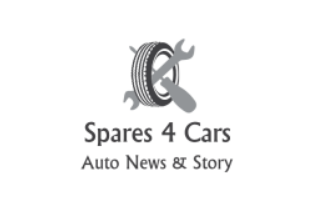Three of the world’s most popular vehicle manufacturers – BMW, Daimler, and Volkswagen – were caught teaming up to delay technology for cleaner emissions. The German carmakers allegedly met secretly about a decade ago and had regular technical meetings about developing SCR or selective catalytic reduction.
SCR removes NOx or nitrogen oxide emissions from diesel-powered vehicles by injecting urea or AdBlue into exhaust gases. Although this process significantly reduces emissions, it also lowers engine performance.
They shared sensitive information, particularly one that pertained to AdBlue tank sizes and average consumption. The German carmakers decided that they would not aim for more than the minimum standard. This means they would avoid competition and limit the potential of new technology. The act is a clear violation of European Economic Area regulations and eliminates continuous development that is valuable for customers.
The cartel involved five carmakers – Porsche and Audi joined BMW, Daimler, and VW. They were known internally as the “Big Five” or the “Circle of Five.”
Daimler, Mercedes-Benz’s parent company, avoided paying fines as they told the European Commission about the cartel. The Volkswagen Group (including Porsche and Audi) is paying £429 million after a reduction in total fines while BMW is expected to pay over £318 million.
The Commission’s executive vice president Margrethe Vestager said the decision is a strong message against companies that break the European Union’s antitrust rules. Carmakers need to innovate and compete as this will help achieve Europe’s Green Deal objectives. The decision is also an indication that the Commission does not take lightly any action that can get in the way of the said goal.
The Volkswagen Group issued a statement and said they were planning to appeal their fines. They based their decision on the fact that it was the first time the Commission considered technical cooperation a violation of antitrust laws.
On the other hand, BMW firmly stated that the manufacturers involved did not use any defeat device for cheating on emissions testing; it focused only on competition law. Furthermore, the carmaker said the Commission has withdrawn antitrust charges violations, but they are willing to consider the European Commission’s proposed settlement.
The diesel emissions cheating scandal
The collusion is one of the latest developments in the Dieselgate emissions scandal that shook the global automotive industry in 2015. Authorities in the US claimed that they discovered defeat devices in Audi and VW diesel vehicles that were sold in the American market. The Volkswagen Group was required to recall affected vehicles and pay fines.
Defeat devices can tell when a vehicle is in the lab for regulatory testing. Once they do, the devices artificially reduce emissions levels so that these would stay within the legal limits that the World Health Organization (WHO) mandated. Inside the lab, and to regulators, the vehicle appears safe and emissions-compliant. Once it is out on the road, though, the story changes.
When the vehicle is driven on real roads, the defeat devices automatically deactivate so default settings reassert themselves, making the vehicle releases excessive amounts of nitrogen oxide or NOx, which are dangerous emissions with adverse effects on people and can destroy the environment.
The Volkswagen Group sold their Audi and Volkswagen diesel vehicles for a premium price but with defeat devices that heavily pollute the environment. What made the situation even worse is the fact that their customers did not know anything about the defeat devices. So, yes, the carmaker lied to car owners.
Aside from the VW Group, other carmakers have also been implicated in the diesel emissions scandal. Mercedes-Benz was the second manufacturer to get the spotlight after US authorities found defeat devices in their diesel vehicles (just like VW).
Other carmakers potentially involved in the Dieselgate scam include Renault, Alfa Romeo, and BMW.
Apart from joining the collusion cartel with Daimler and Volkswagen, BMW has also been accused of fitting their diesel vehicles with defeat devices so they could reduce NOx emissions. Environmental Action Germany or Deutsche Umwelthilfe (DUH) made the allegations, which led the German Federal Motor Transport Authority (KBA) to investigate the matter.
DUH said that BMW’s exhaust cleaning mechanism is throttled once the engine goes over 2000 rpm or revolutions per minute; it is completely switched off when the engine exceeds 3500 rpm. Since normal driving conditions are affected, this is considered an illegal act.
Car owners with affected vehicles are encouraged to bring forward an emissions claim against their carmaker for all the deceit they have been subjected to.
Other reasons for making a claim
Aside from the deception, carmakers like VW, Mercedes, and BMW—through mis-selling their vehicles as fuel-efficient—also exposed their customers to NOx emissions, which have life-changing effects not only on the environment but on their health as well.
With nitric oxide (NO) and nitrogen dioxide (NO2) as primary components, the highly reactive NOx produces other pollutants such as acid rain, smog, and ground-level ozone.
Your mental health and cognitive abilities are affected as well, but the most devastating impacts are on your health. These impacts include lung problems, difficulty in breathing, asthma, and various respiratory issues. Serious impacts are asphyxiation and vocal cord spasm, cancer, cardiovascular diseases, and premature death.
Making a diesel claim
Before making a diesel claim, you need to verify first if you are eligible to make one as there are several requirements to consider. Visit Emissions.co.uk to get all the information you need to move forward with your claim.

